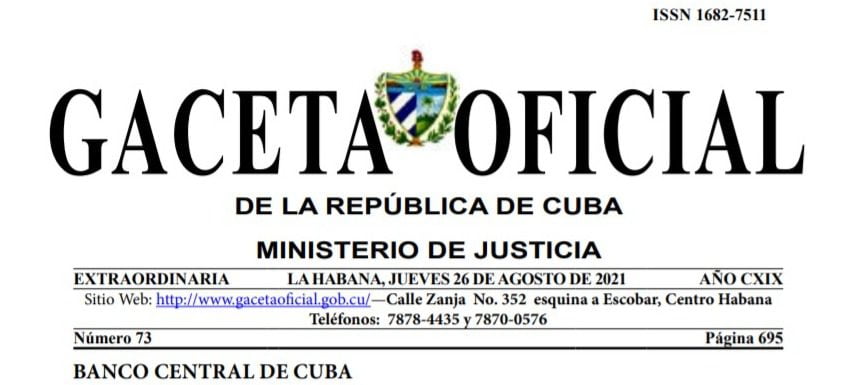The Central Bank has already authorized Bitcoin and cryptocurrency payments for specific transactions in Cuba.
Cuba Authorizes Cryptocurrency Payments on the Island. The Central Bank of Cuba has revealed that using “certain virtual assets in commercial transactions” is enabled throughout the country. The resolution, signed by Marta Sabina Wilson González, president of the entity, leaves several aspects unclear. Which cryptocurrencies can people use and which may not, and what are the conversion rates to consider for operations?
Government provisions
According to the provisions of the Extraordinary Official Gazette (Google translation here) of Thursday, August 26, the Central Bank of Cuba understands a virtual asset as “a digital representation of value that can be traded or transferred digitally and used for payments or investments.” This term includes “several meanings used for the same purposes, such as digital asset, crypto asset, cryptocurrency, virtual currency, and digital currency,” the document states.


The text leaves several ambiguities regarding which cryptocurrencies or tokens will be valid. However, everybody understands businesses will accept bitcoin (BTC) and ether (ETH). They are the two most recognized and valued cryptocurrencies.
On the other hand, the regulation does not establish traders’ mandatory acceptance of cryptocurrencies. In the third introductory paragraph of the resolution, the authors clarify that Decree-Law 361 of 2018 provides in its Articles 60 and 63 that the Cuban peso is the only legal tender currency in the territory of that country. Therefore, it is the only one whose adoption is mandatory.
According to Cuban media, one of the main factors driving this measure could be the difficulty of sending and receiving remittances from abroad in dollars. This problem began during Donald Trump’s presidency in the United States. The situation deteriorated later by the economic problems caused by the COVID-19 pandemic.
Use of Virtual Assets in Cuba
Financial institutions, legal entities, and individuals can operate with virtual assets only for specific transactions. The Central Bank of Cuba must previously authorize them.
On the other hand, the text grants the license to operate to “virtual asset service providers for operations related to financial, exchange and collection or payment activities, in and from the national territory.” According to the Official Gazette, State agencies, and political and social organizations must abstain from using virtual assets and their services.
Finally, the resolution of August 26, 2021, which will enter into force “20 days after its publication“, states that the organizational units of the Central Bank of Cuba will inform about “the intrinsic risks” of the unauthorized use of virtual assets and their possible consequences.
The evolution of bitcoin in Cuba
The Communist Party of Cuba (PPC) said in April 2021 that it would include Bitcoin in the new economic guidelines for 2021-2026. On that occasion, a state official noted that the Caribbean nation would study the use of cryptocurrencies “in the economy’s current conditions.”
Meanwhile, during the protests earlier this year, many Cubans took advantage of cryptocurrencies to donate to those in a situation of health vulnerability. Several media reported on the action of a group of volunteers from Matanzas, one of the areas most affected by the pandemic, to purchase hygiene elements, food, and medicines.
